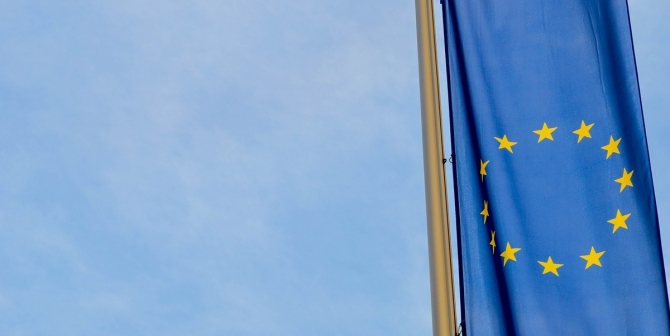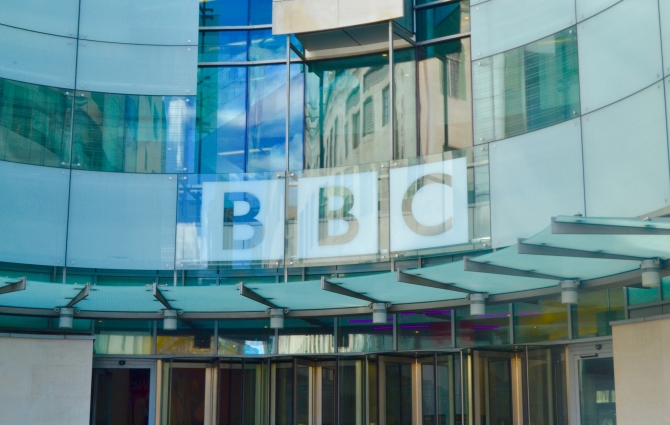 At today’s Oxford Media Convention, Patrick Barwise, Emeritus Professor of Management and Marketing at London Business School, and Robert Picard, Director of Research at the Reuters Institute, launched a Reuters Institute report based on their independent academic study of what the UK television market would be like if there were no BBC TV. In this guest blog, they summarise the study’s aims, conclusions and implications.
At today’s Oxford Media Convention, Patrick Barwise, Emeritus Professor of Management and Marketing at London Business School, and Robert Picard, Director of Research at the Reuters Institute, launched a Reuters Institute report based on their independent academic study of what the UK television market would be like if there were no BBC TV. In this guest blog, they summarise the study’s aims, conclusions and implications.
Critics of the BBC often argue that, funded by a compulsory licence fee, it distorts the market, making it hard for commercial competitors to prosper and meet consumers’ needs. They conclude that viewers would be better served if the BBC were smaller – allowing commercial broadcasters to expand – and showed only public service programmes (valued for ‘citizenship’ reasons) that the market will not provide.
Although this argument that the BBC ‘crowds out’ commercial provision has been widely made, none of its proponents has to our knowledge provided any empirical evidence to support it or tested the presumption that a free market without the BBC, funded by subscriptions and advertising, would meet consumers’ (although maybe not citizens’) needs better than the current mixed economy.
An alternative hypothesis, supported by recent evidence, is that on balance, far from crowding out the commercial broadcasters, the BBC forces them to ‘compete on quality’, increasing their need to invest in content, especially first-run UK content, in order to attract viewers. In our study, however, we give the BBC’s critics the benefit of the doubt, assuming that the crowding out hypothesis is correct and testing its implications using recent market data.
The question we therefore address is: if there is crowding out, what is its extent and what is the net impact on viewers? We do this by creating a range of scenarios showing what the current UK television market might be like if there were no BBC-TV and no licence fee, and the resulting net impact on viewers. We focus on the UK television market and the BBC’s net impact on the public as consumers rather than citizens. Issues not addressed include:
- The net impact of BBC Radio, BBC Online, the World Service, S4C, Broadband Delivery UK and the other activities funded by the licence fee. If there were no BBC TV and no licence fee, these would either have to be cut or another way of funding them would have to be found.
- The BBC’s impact on the UK’s national culture, society, child development, politics, creative industries, technology adoption, wider economy, regional development and international standing. As far as we know, even the BBC’s strongest critics accept that the UK public benefits from these ‘citizenship’ contributions.
We conclude that (even if there is crowding out), without BBC Television:
- Total TV industry revenue would most likely be lower, although there is a wide range of uncertainty.
- Total content investment would be 5-25% lower.
- Investment in first-run UK content would be 25-50% lower.
- The net impact on viewers would vary, but most would suffer a reduction in both choice and value for money.
A 25-50% net reduction in investment in first-run UK content would also be a severe blow to UK production companies.
These projections are, if anything, conservative since they assume that the BBC does crowd out some commercial content investment.
None of the BBC’s critics argue for it to be abolished overnight but many want it scaled back, without providing any evidence that a smaller BBC would be better for the public. Our analysis suggests the opposite. Scaling back the BBC would be not be as bad as abolishing it but it would still be detrimental to the UK public as both consumers and citizens and very damaging to UK producers.
Nor is the idea of the market without the BBC just a theoretical abstraction. On the contrary, it is the logical conclusion of the current ‘salami-slicing’ policy – freezing the BBC licence fee and diverting more and more of it to fund activities and organisations other than the BBC’s UK services – while the rest of the market grows. If this policy continues – or even accelerates, as some are advocating – within a generation the BBC will be reduced to a minor sideshow, the UK equivalent of PBS in America.
The practical implication is that the ‘salami-slicing’ of the BBC should stop. It is in both producers’ and consumers’ interest that the BBC should be well funded under the next Charter starting in 2017.
Download the full report at: https://reutersinstitute.politics.ox.ac.uk/publications
This article gives the views of the authors, and does not represent the position of the LSE Media Policy Project blog, nor of the London School of Economics.




